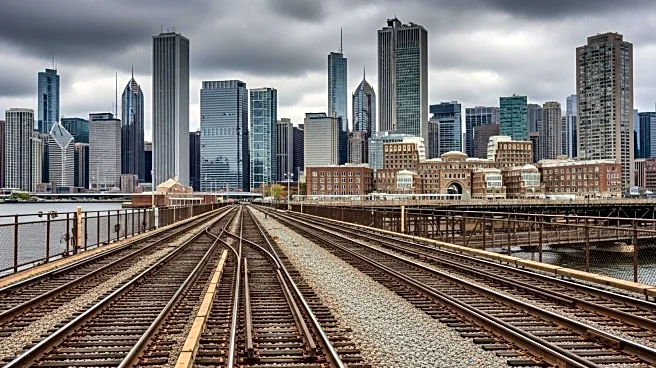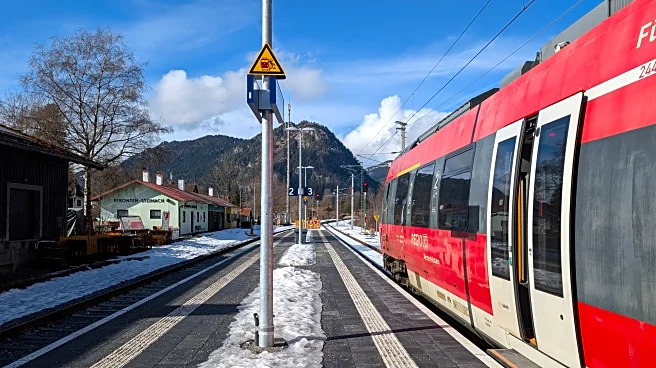What is the story about?
What's Happening?
U.S. Transportation Secretary Sean Duffy has issued a warning to Chicago and Boston, stating that their transit systems could lose federal support if local leaders do not take immediate action to improve safety. This announcement follows a series of violent incidents on the Chicago Transit Authority (CTA) and Massachusetts Bay Transportation Authority (MBTA), including assaults on transit workers and passengers. Duffy criticized the cities for failing to protect riders and workers, and emphasized the need for enhanced safety measures. He has requested written reports from both transit agencies within 14 days, detailing steps taken to curb crime and improve cleanliness, along with funding sources for safety and security.
Why It's Important?
The warning from Secretary Duffy highlights the critical issue of safety in public transportation systems, which affects millions of commuters daily. The potential loss of federal support could have significant financial implications for these transit systems, impacting their ability to maintain operations and implement necessary safety measures. This situation underscores the broader challenge of balancing public safety with effective transit management, and the need for local governments to prioritize the protection of their citizens. The emphasis on safety also reflects a growing concern over crime rates in urban areas, which could influence public policy and funding decisions at the federal level.
What's Next?
Both the CTA and MBTA are expected to submit detailed reports to the Department of Transportation, outlining their plans to address safety concerns. These reports will likely influence future federal funding decisions and could lead to increased scrutiny of transit systems nationwide. Local leaders in Chicago and Boston may face pressure to implement more stringent safety measures and policies to avoid losing federal support. Additionally, the issue may prompt broader discussions on public safety and crime prevention strategies in urban transit systems across the country.

















